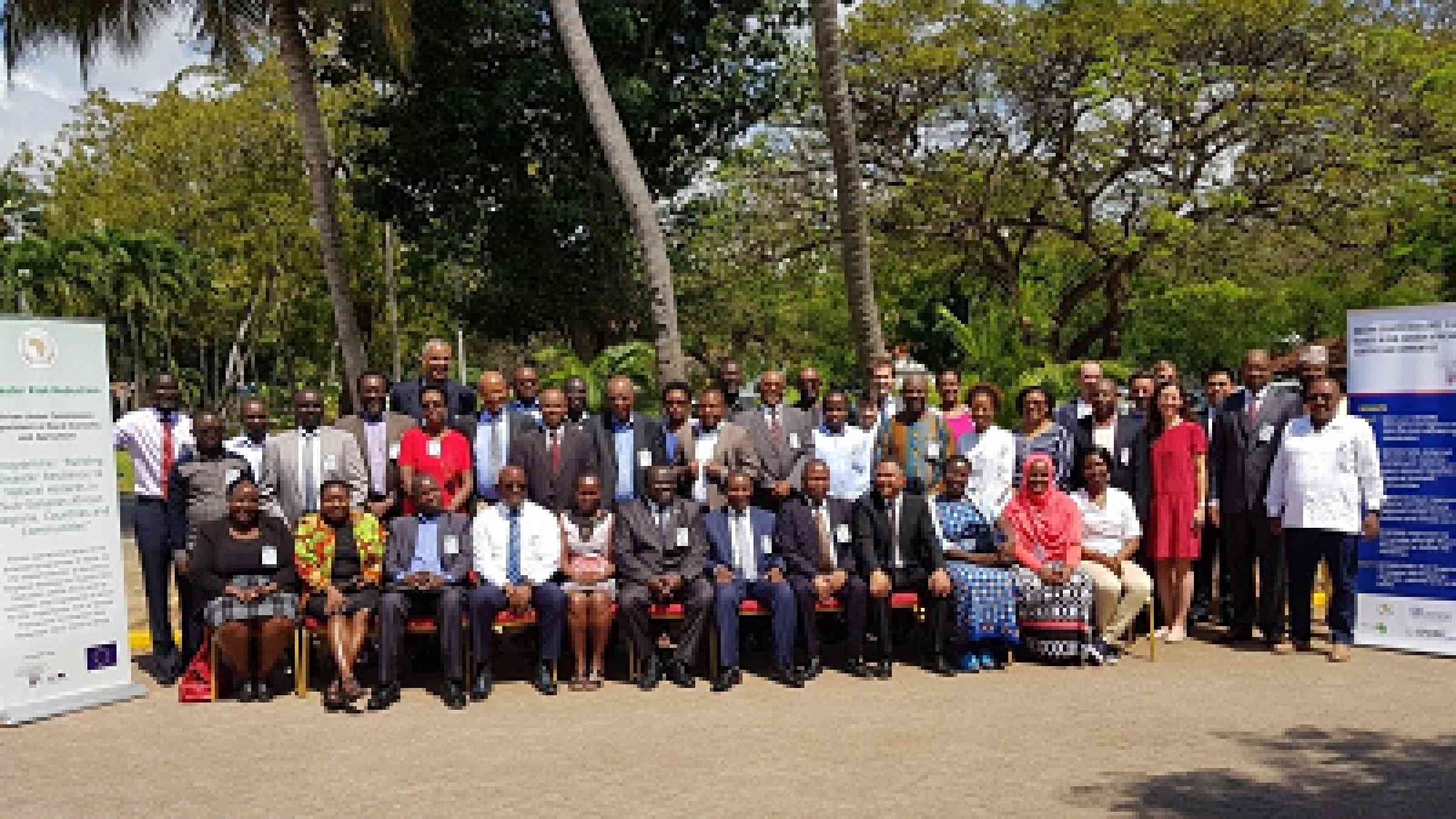Africa gets ready for Sendai Monitor

Nairobi, Kenya, 18 October 2017 - The African Union has announced plans to increase the number of member States with national disaster loss data bases and to put a training programme in place in preparation for the roll-out next year of the Sendai Monitor, the UNISDR-backed mechanism for measuring progress in reducing disaster losses.
The head of UNISDR’s Regional Office for Africa, Mr. Amjad Abbashar, said: “The African Union is a critical partner in raising the level of disaster risk management in Africa and making progress on the seven targets of the Sendai Framework for Disaster Risk Reduction including reducing the numbers of people affected by disasters which was the focus of this year’s International Day for Disaster Reduction on October 13.
“This work is important when the region is struggling with the interplay between poverty, drought, environmental degradation, climate change, and unplanned urbanization. The African Union is investing in better risk governance through these initiatives.”
These key areas were highlighted at the Eleventh Session of the Africa Working Group (AWG) on Disaster Risk Reduction held in Mombasa, Kenya from 26-27 September 2017. The meeting, organized by the African Union Commission’s Disaster Risk Reduction Unit within the Department of Rural Economy and Agriculture (AUC –DREA), with support from UNISDR Regional Office for Africa, and hosted by the Intergovernmental Authority on Development (IGAD) brought together 60 participants drawn from African Member States, Regional Economic Communities (RECs), UN agencies, NGOs, academia, media and youth.
“Disasters continue to rage in Africa – the recent mudslides in the Democratic Republic of Congo and Sierra Leone that saw hundreds of lives lost and numerous livelihoods destroyed, as well as the recurring drought in the Horn of Africa, illustrate the urgent need for concrete actions that will enhance resilience against both natural and anthropogenic hazards” said Godfrey Bahiigwa, Director of Rural Economy and Agriculture at African Union Commission.
The AWG participants committed to organize a Training of Trainers for AUC and RECs on the global Sendai Monitor. They agreed to develop indicators and a monitoring framework for the Africa Plan of Action in coherence with indicators developed for measuring progress on implementing the Sendai Framework, Sustainable Development Goals, and AUC’s Agenda 2063. Participants also called for strong engagement with national statistical institutions in this regard.
The next AWG meeting to review progress is scheduled for March 2018.
The working group meets every six months and plays an important role in providing technical support to the African Union Commission, Regional Economic Communities, Member States and partners for the coordination and implementation of the Africa Regional Strategy for Disaster Risk Reduction and its Programme of Action.
The meetings are part of the “Building Disaster Resilience in Sub-Saharan Africa Programme” a multi-year regional programme funded by the European Commission and being implemented as part of its cooperation with the African, Caribbean and Pacific Group of States. The programme has five result areas that are implemented by the African Union Commission, UNISDR, the World Bank’s Global Facility for Disaster Reduction and Recovery and the African Development Bank’s Clim-Dev Africa Programme.
Cabo Verde, Guinea Bissau, Gambia, Cote D’Ivoire, Namibia, Botswana, Zambia, Equatorial Guinea, Swaziland, Tanzania, Angola, Rwanda, Kenya, Uganda and Ethiopia, have so far received training in disaster loss databases, and Equatorial Guinea, Swaziland, Angola, Rwanda, Kenya, Uganda and Ethiopia have their databases up and running since the inception of the programme, allowing for better risk understanding and more risk informed investment in sustainable development.
UNISDR has established a training server in Geneva as part of efforts to build capacity of countries to account for and analyse disaster losses.
Mr. Abbashar observed that steady progress is being made on target (e) which seeks to substantially increase the number of countries with national and local disaster risk reduction strategies by 2020. “This work will get a major boost when the 2016 East African Communities Disaster Bill is enacted by the region’s Heads of State,” he said.